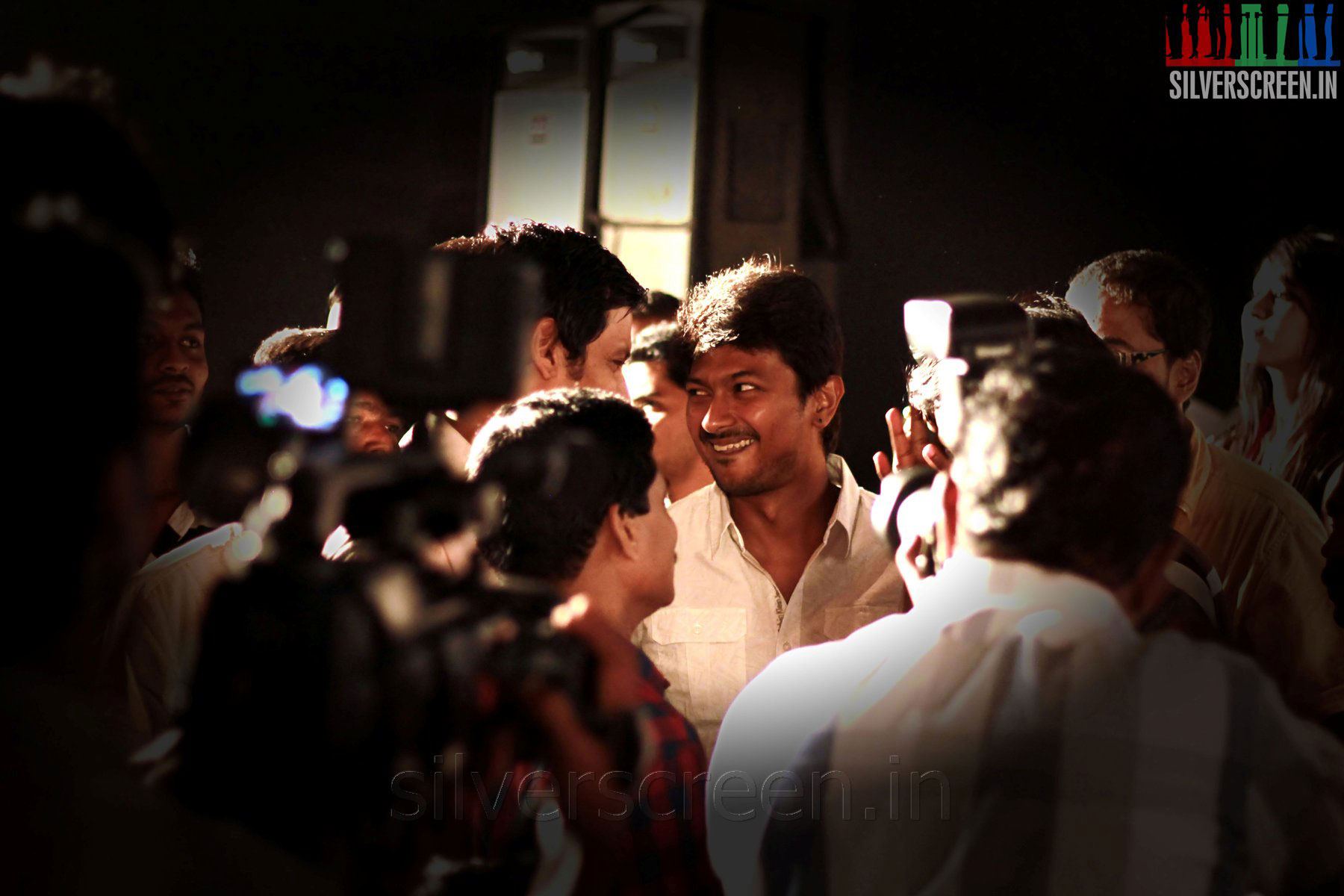Cast: Asif Ali, Mukesh, Farhaan Faasil
Director: Arunkumar Aravind
One of the central characters in Arun Kumar Aravind’s Underworld is Padmanabhan (Mukesh), a former cabinet minister, now serving a prison sentence for a high-profile corruption case. In a pivotal scene set inside his prison cell, a book – MK Gandhi’s My Experiments With Truth – is placed in prominence. “I’ve always wanted to read this book. Now I have the perfect opportunity,” smiles the politician. Of course, the director and the writer mean to hint at the wickedness of the character. He is oddly calm inside the jail. He might have a great plan. However an hour and some odd minutes later when the film ends, the details of his wickedness remain undelivered. Perhaps there was no plan at all.
Every element in Underworld – the chest-thumping background score, slow-motion shots and other hackneyed aesthetic elements – does little else than rendering the narrative obvious. Instead of a personality, the characters get a hip sense of fashion that reeks of pretentiousness. They claim to be smarter than everyone around them, but end up making the stupidest decisions at pivotal moments. Instead of a sturdy backstory or convincing details to hold the film’s emotional narrative together, Aravind uses an overdose of slow-motion shots and punch dialogues that work like bullets fired into the air.
It is an irony that a film as shallow as this is named Underworld.
At one point in the film, you see a visual from Bharathan’s iconic Thazhvaram playing on television. It’s an unintentionally cheesy moment because you see the kind of revenge story Aravind is aiming for, but clearly he doesn’t have the material (or the will) to delve into that depth. Underworld is a cat and mouse chase between a lone sadist criminal, Solomon (Lal Jr) and two relatively lowly thugs, Stalin John (Asif Ali) and Majeed (Farhan Faasil). There are a couple of interesting set-pieces where the characters showcase their daredevilry and that they’re capable of serious violence. The problem is, none of those moments develop into a memorable sequence that leave the audience in awe. The writing isn’t barely smart, and Aravind’s directorial choices are misplaced.
For one, several times in the film’s initial half, Stalin announces to the camera that he is a self-made hero. A well-cut song sequence in the early part of the film quickly establishes that he, the son of a lower-middle-class widow (Sree Lakshmi) in a nondescript village, was drawn into the world of crimes at an early age. But the makers are less invested in delineating Stalin’s influences, circumstances or facets of his inner-personality that makes him an expert at what he does than they are in announcing to the world his special talent in dishing out punchy dialogues. “You don’t know who you are messing with,” he repeats to various people he meets. But there is no evident effort from the part of the film’s makers to help Stalin deserve those dialogues or the audience’s attention. The narrative isn’t really dynamic.
The only fleeting moment we get a sense of what is going on inside his head is when he makes an impulsive decision to explode a building in the centre of the village using LPG cylinders. The slow-mo shot with him in the foreground and the burning building in the background – a classic image – is promising. But it fizzles out as the film quickly moves on to more of exhaustingly ordinary instances, and end in a climactic showdown that is shockingly shoddy.
Recommended
The early scenes of Majeed are about a love story that’s composed using the most cliched images. Aravind even uses an utterly forgettable song in this part that pushes Majeed further into the zone of mediocrity. Worse, Faasil is a lousy actor who does a bad job at making Majeed’s hotheadedness endearing. The editing of the film (Arun Kumar Aravind himself) turns the narrative thoroughly uneven and an ordeal to sit through. The only sensitive element in Underworld must be Alex J Pullikkal’s cinematography that maintains a consistency and a nice restrain.
Arunkumar Aravind’s best known films, Left Right Left and Ee Adutha Kaalathu, were interesting dramas that paid attention to the complexity of human nature. Underworld is an essentially different film that aspires to be ‘mass’ and stylish. However, Aravind ignores a basic fact here, that the primary quality expected of an entertainer is an ability to have its audience emotionally involved in its proceedings. Underworld doesn’t succeed even remotely in being a gripping film, let alone be a memorably stylish entertainer.
The Underworld review is a Silverscreen original article. It was not paid for or commissioned by anyone associated with the film. Silverscreen.in and its writers do not have any commercial relationship with movies that are reviewed on the site.



